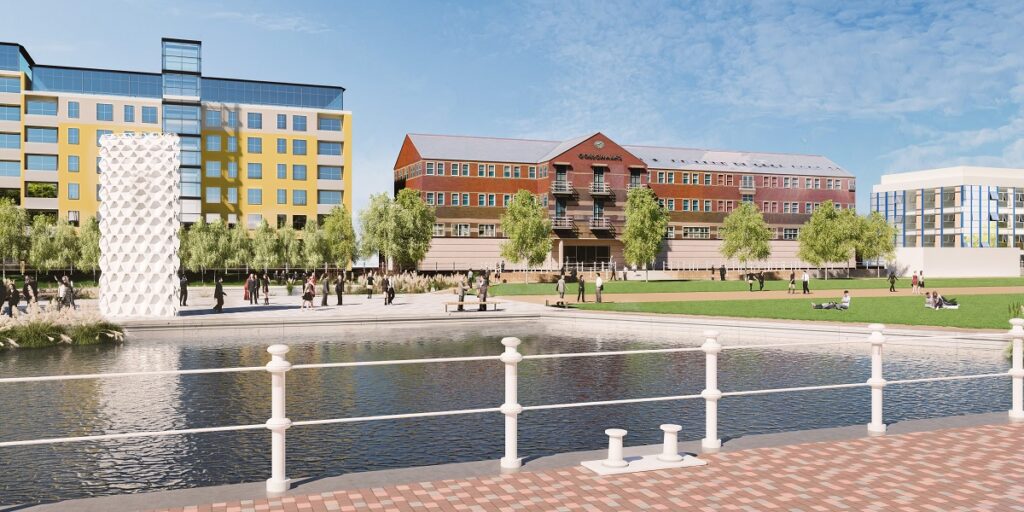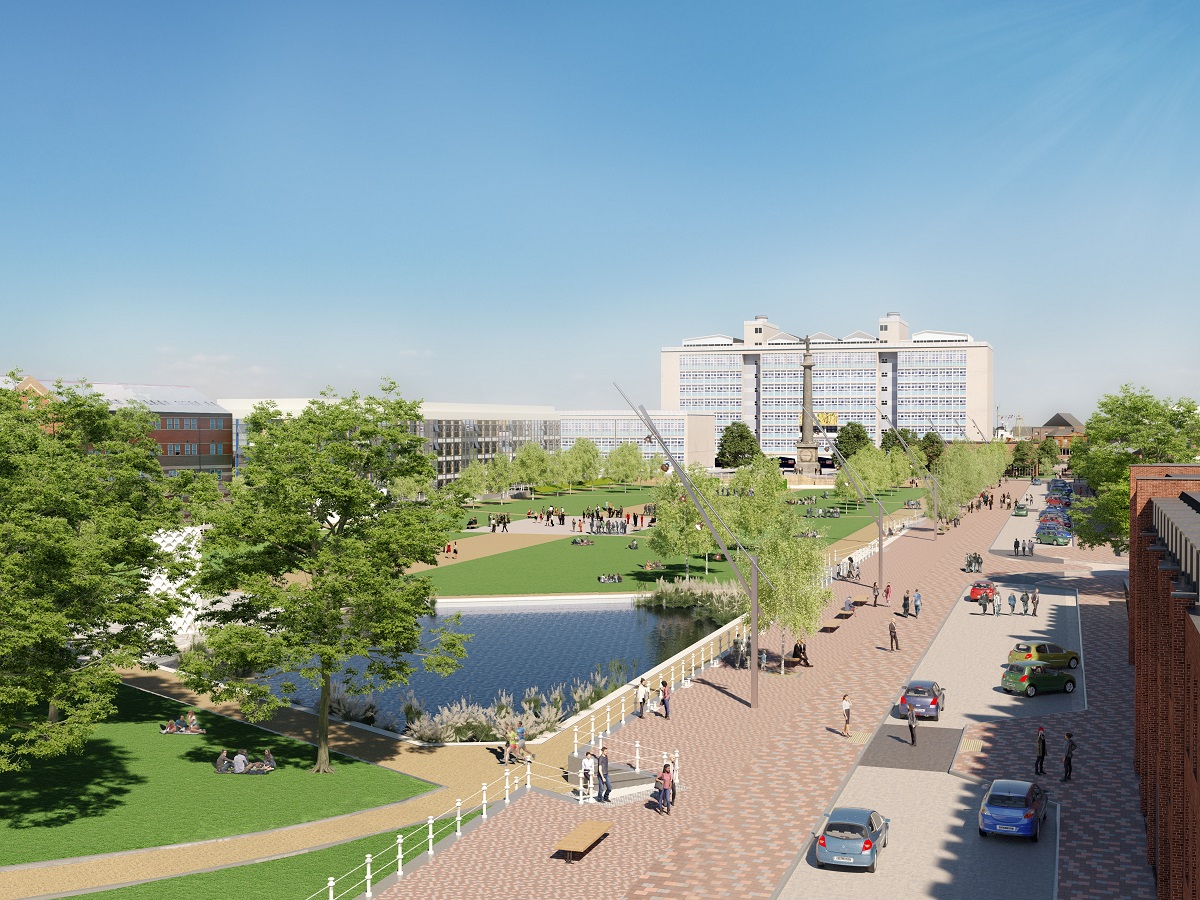Hull’s transformative Queens Gardens refurbishment has been given the green light by Hull City Council’s planning committee.
Hull City Council’s planning committee today (Tuesday 16 November) voted unanimously in favour of the application.
The plans include the improvement of accessibility and visitor flows, delivery of structural repairs through rebuilding the perimeter walls, introduction of bespoke pieces of public art, improvement of biodiversity and the regeneration of a much-loved open space.
Preparatory work has already begun on the site after the project was given pre planning support last December.

The project will make the gardens fit for purpose, futureproofing the space and its ability to host large-scale events. The history of the gardens will be incorporated in its design, reconnecting it with the origins of the space as a former dock.
Councillor Daren Hale, leader of Hull City Council, said: “Today is a fantastic day for our city and our historic Queens Gardens.
“Preparatory work has already begun on site and a contractor has been appointed to deliver the refurbishment, so today was the final piece in the jigsaw.
“I, like many residents, am now excited and eager to see this important restoration take place. Queens Gardens has always been a key location in our city centre, playing an important role in Hull’s rich history and heritage. Its much-needed refurbishment means that it will now play an important role in our exciting future.”
Last month a contractor, local construction company CR Reynolds Ltd, was appointed for the project.
The project includes the refurbishment of the Rose Bowl and its historic fountain, the inclusion of various art installations and the creation of a large and flexible event space.
The art installations, from internationally-renowned and award-winning artists Katayoun Dowlatshahi and Heinrich & Palmer, will include a new seating area in the Peace Garden, integrated artworks on new amphitheatre-style seating, as well as maritime-inspired installations and lighting along the boundary of the gardens.

Careful consideration has been given to the project to ensure that the space is futureproofed and environmentally friendly.
The plans incorporate modern, eco-friendly features including electric charging points for taxis and the introduction of plants and trees to increase the gardens’ biodiversity.
The plans include the planting of new, feature trees that can cope with changes in climate and native trees to replace those that are in a poor condition or require removal due to the design of the park or the undertaking of essential structural repairs.
For every tree removed, three trees will be planted in the gardens and in other locations across the city centre.
Trees will be replaced and planted providing appropriate replacement species, improving foliage and providing a good source of nectar and pollen for birds, bees and insects to enhance biodiversity. Some of the trees within the planting scheme are on the endangered species list.
The plans for the gardens are sympathetic to those of Sir Fredrick Gibberd, one of England’s most distinguished 20th-century architects who redesigned the gardens in the 1950s.
The Queens Gardens refurbishment is an integral part of the Hull: Yorkshire’s Maritime City project as it will link the Hull Maritime Museum to the North End Shipyard – which will be the new home of the historic Arctic Corsair. The shipyard is being transformed into a new visitor attraction, which will tell its rich story for the first time.
